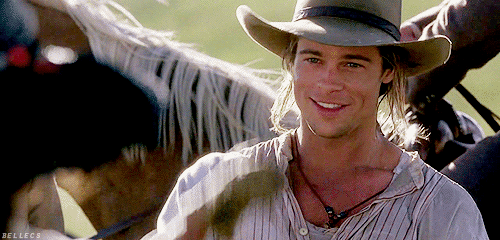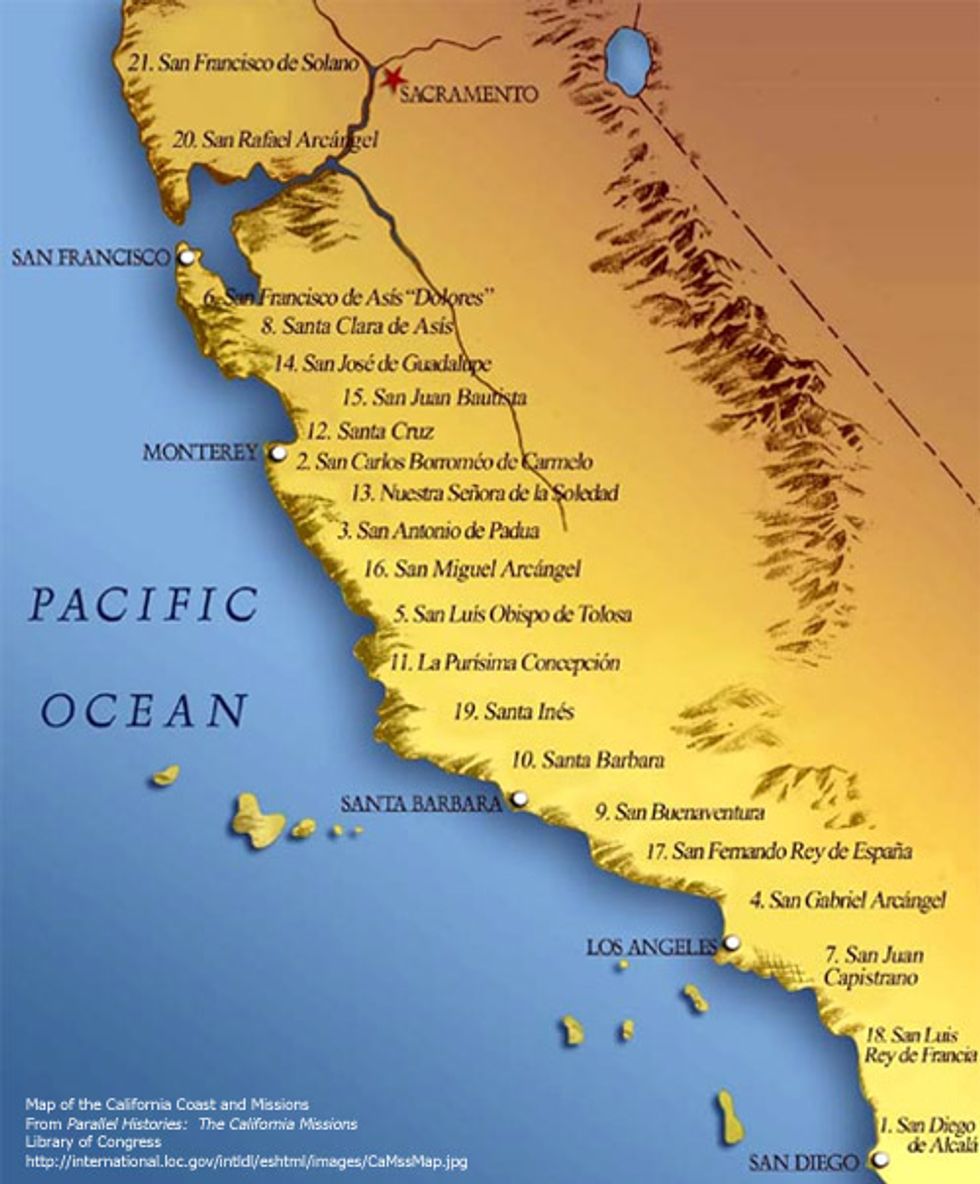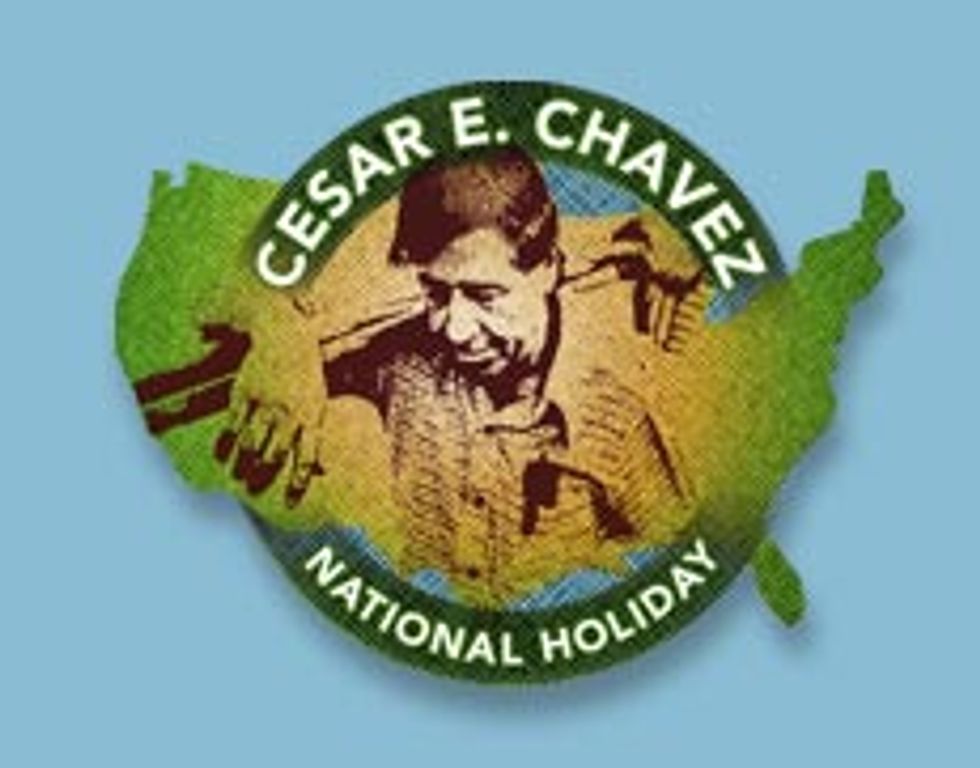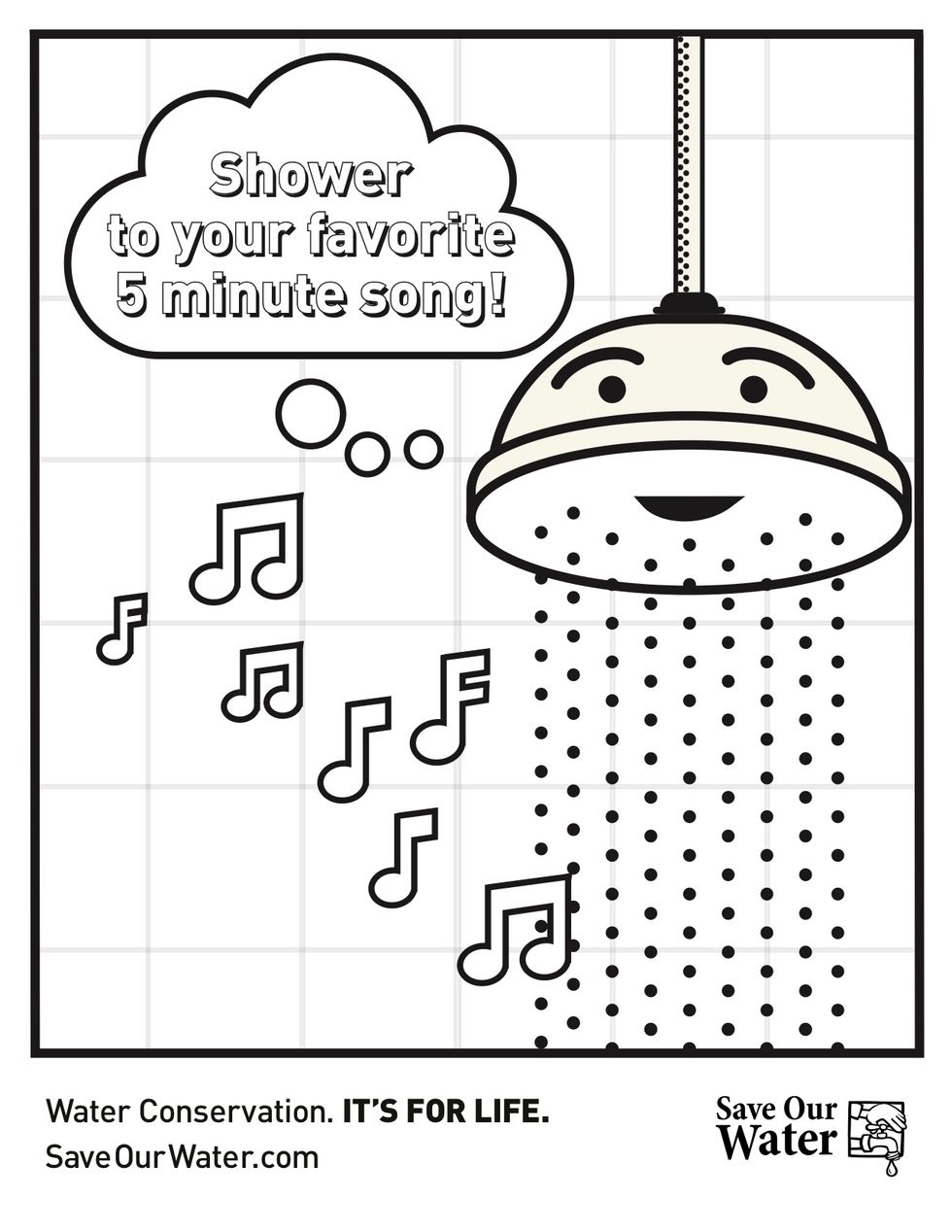1) Ridiculous amounts of detail surrounding the California Gold Rush.
Yee, haw! Eureka! We found GOLD!
We definitely spent several months learning about how, in cowboy-times, all these folks came west to find gold and it was, apparently, a big deal. They neglected to include the parts where we oppressed people over and over, but oh well.
I starred as "Barker #2" in my 4th grade, elementary school, class-wide production of "Gold Dust or Bust", where we performed an incredibly watered-down, musical rendition of the California Gold Rush. It included one Native character, of course played by one of the many white kids in my class. Also, the only woman who talks in the whole play is the damsel in distress by the name of "Yellow Rose". Yipee-ki-YIKES!
2) The Spanish Catholic Missions.
Ah, who doesn't love having to learn to build a church out of cardboard and popsicle sticks?
For my mission project (which by the way was at a Jewish school), I had San Antonio de Padua. We learned about how these were "important landmarks", but they neglected to teach us that these were only established so that the Franciscan-era priests could evangelize the Native Americans.
3) Cesar Chavez.
Caesar Chavez, the late founder and president of the United Farm Workers of America, was a part of our curriculum not only because it was within our state values, but because we had a commemorative holiday for him before the rest of the U.S. did. I wish we learned more about him since most people just used this holiday as a reason to celebrate not having school, but what he did for farmers was so incredibly important and his impact still lasts today. His holiday is now an official national holiday, mark your calendars for March 31!
4) Water conservation.
I don't know about you, but at my school, entire units were spent learning about how bad your impact was on the California drought. I distinctly remember having to put a tally mark down every time I turned on a faucet or flushed the toilet for a solid month.
I always kind of assumed that kids in other places learned to turn off the sink when you brushed your teeth and make sure not to let the water run while you applied shampoo, but then I moved away for college and realized that they just taught it to us because we were suffering from a major drought, and that no one else learns these things in school.
So, here's to hoping that these things continue to be taught, but instead of how we were taught them, teaching them with accuracy, truth, and the drive to teach kids to take initiative in doing what they can to repair the things and peoples we hurt.





















